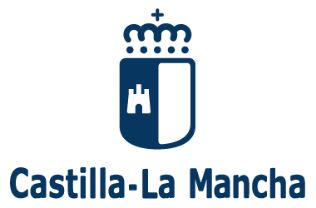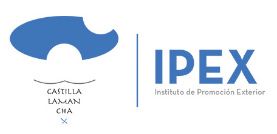The production of GWh of photovoltaic and thermal solar energy is leading in Spain
Castilla-La Mancha has 139 wind parks and is the top región in the country in terms of the production of GWh of photovoltaic and thermal solar energy
As the epicenter of renewable energies in Spain, Castilla- La Mancha is home to the Institute for Concentration Photovoltaic Systems and the National Hydrogen and Fuel Cell Technology Testing Centre, as well as large companies in the wind sector.
Toledo, October 21st, 2020-. The Council of Economy, Business, and Employment, through the Foreign Trade and Investment Institute (IPEX), has brought together more than 50 potential investors, businesses, and institutions from ten countries in a virtual meeting to display the advantages and potential the region offers as a “Premium Destination for Investment”, especially in a sector as strategic as renewable energies.
The event, which included the participation of Patricia Franco, Counsellor of Economy, Business, and Employment for Castilla-La Mancha (CLM), showcased the region’s business activity, success stories, and experience in the sectors of activity which represent a business opportunity for foreign companies, including the renewable energy sector, among others.
The Green Economy will help with the creation and maintaining of 47,500 jobs, it will attract and benefit more than 25,000 foreign companies and start-ups, and it will be backed by nearly 300 million euros from the Plan Adelante 2020-2023. With 73% of its energy power produced by renewables, Castilla-La Mancha has the fourth-greatest number of wind parks in Spain (139), and it is the first region in the country in terms of its production of GWh of photovoltaic and thermal solar energy. Its support for innovation is also notable, evidenced by the presence of the Institute for Concentration Photovoltaic Systems (ISFOC) and the National Hydrogen and Fuel Cell Technology Testing Centre (CNH2), which, as noted by Patricia Franco, are attractive innovation hubs which are in line with the ambitious objectives for these technologies set by the European Commission for the 2020-2050 period.
In order to boost business and innovation activity in the region, Javier Rosell, General Director of Companies, reviewed several of the benefits of the priority project law published in June, which not only “offers a judicial security framework to accelerate and simplify administrative processes for companies who would like to invest in projects considered priority for the region”, but also includes additional measures and benefits in areas related to access to financing, localization, and business support.
Furthermore, the General Director of Companies presented initiatives for support, such as the Plan Adelante 2020-2023, including the Regional Economic Incentives, and the Reindus line.
During the event, Roberto Campana, head of the Research Unit of the CNH2, discussed the center’s opportunities and technological capabilities, presenting a successful example of the use of solid oxide fuel cells for the reuse of agri-food waste compared to the conventional burning of the waste. Since its creation in 2007, and via public-private collaboration between institutions, business, and universities, the center has participated in over 30 innovation and development projects. Campana is promoting the arrival of new industrial partners which would allow for the kickoff of new projects.
Óscar de la Rubia, head of R&D and Operations at ISFOC, showcased the center’s different laboratories available for companies to use for the testing of products, and presented a case in which he analyzed how the reduction of costs associated with Building Integrated Photovoltaics (BIPV) is possible. De la Rubia also highlighted the business opportunities surrounding hybrid photovoltaic systems and intelligent sensors for networks in smart cities, smart agriculture, and smart photovoltaic plants, among others.
The event was also supported by companies such as Vestas, whose remarkable historic presence in the region with a wind turbine blade factory in Daimiel (Ciudad Real) employs over 1,300 people. The company presented its own success story, along with the region’s opportunities for growth and innovation in this sector.
The meeting was backed by IPEX’s foreign network, as well as the German Chamber and the Danish, Norwegian, and Swedish Chambers of Commerce, with whom IPEX has an excellent relationship.
All of the presentations and the video of the event are available at https://www.investinclm.com/en/castilla-la-mancha-premium-investment-destination-in-spain-for-renewable-energies/



